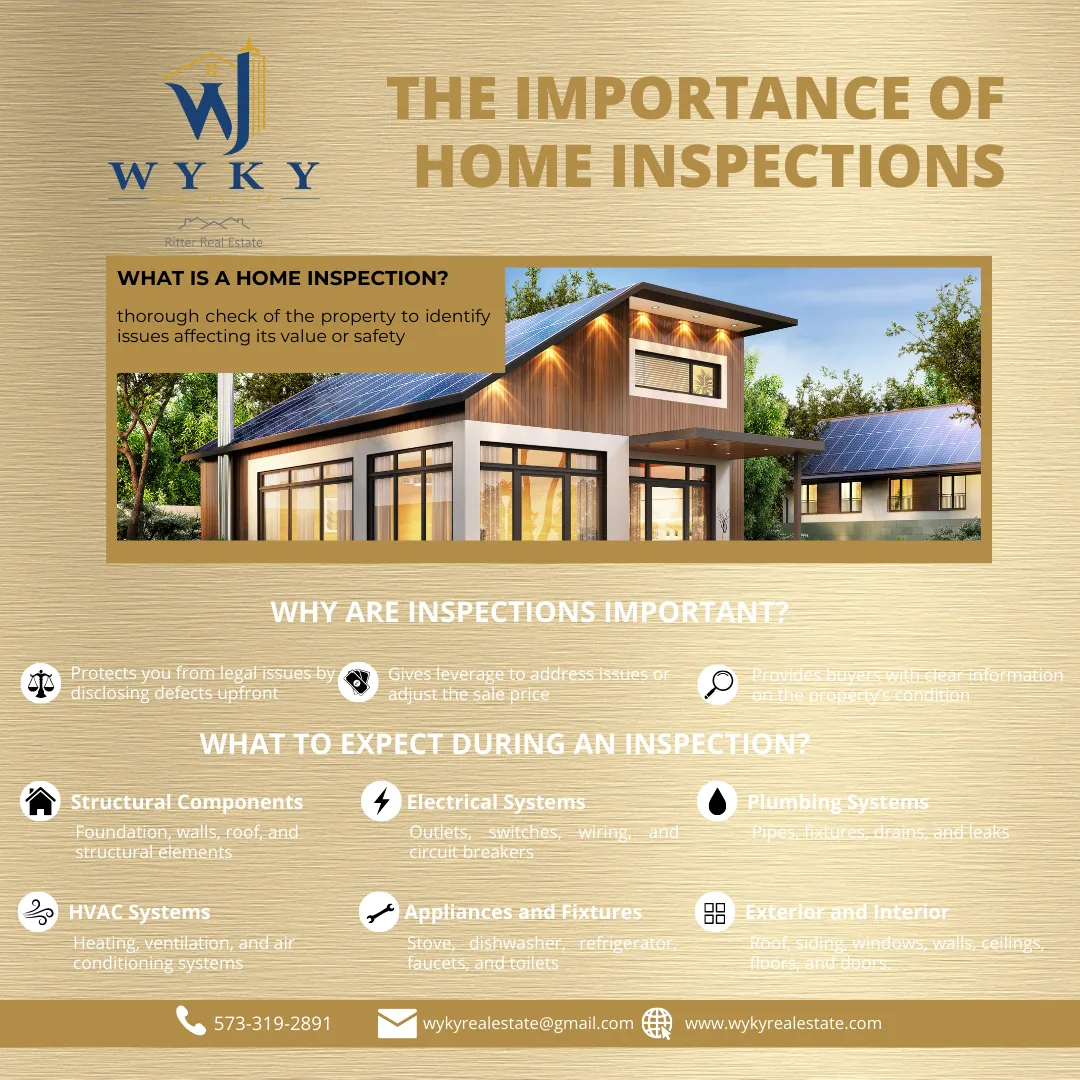
Homeselling Inspections
See look, when it comes to selling a home, one crucial step in the process is the inspection. All a home inspection is - is a thorough examination of the property's condition, conducted by a professional inspector. It’s designed to help identify any potential issues or defects that may affect the value or safety of the home.
Why are Inspections Important?
1. Legal Protection: Inspections can protect you from potential legal issues down the line. Disclosing any known defects or problems upfront, reduces the risk of being sued by the buyer for not disclosing defects.
2. Negotiation Power: Conducting inspections gives you the opportunity to address any issues that may arise. This can give you more negotiation power during the selling process, as you can either fix the problems or adjust the price.
3. Transparency: An inspection provides transparency to potential buyers about the condition of the property. It allows them to make an informed decision and understand any potential issues they may need to address after purchasing the home.
What to Expect During an Inspection?
During a home inspection, the inspector will thoroughly examine various aspects of the property, including:
1. Structural Components: The inspector will assess the foundation, walls, roof, and other structural elements to ensure they are in good condition and free from any significant defects.
2. Electrical Systems: The electrical system will be inspected to ensure it is up to code and functioning properly. This includes checking outlets, switches, circuit breakers, and the overall wiring.
3. Plumbing Systems: The inspector will examine the plumbing system, including pipes, fixtures, and drains, to identify any leaks, clogs, or potential issues.
4. HVAC Systems: The heating, ventilation, and air conditioning systems will be inspected to ensure they are in good working order and properly maintained.
5. Appliances and Fixtures: The inspector will test appliances, such as the stove, dishwasher, and refrigerator, to ensure they are functioning correctly. They will also check faucets, toilets, and other fixtures for any leaks or defects.
6. Exterior and Interior: The inspector will assess the exterior of the home, including the roof, siding, windows, and landscaping. They will also inspect the interior, including walls, ceilings, floors, and doors, for any visible defects and ensure you aren’t selling a home with mold or pets.
What Happens After the Inspection?
After the inspection is complete, the inspector will provide a detailed report outlining their findings. As the seller, you can review the report and decide how you would like to proceed. You could possibly address the issues and make necessary repairs, negotiate with the buyer on the price, or disclose the findings to potential buyers and sell the property as-is. It all depends on your end goal. It’s as simple as that.
It's important to remember that some buyers may choose to conduct their own inspections, even if you have already done one. This is their right to do so, and it's essential to be prepared for any additional inspections that may occur. That’s just the nature of buying and selling homes. It all depends on the other party that is interested.
When consulting with me to sell your home, I will guide you through the inspection process and help you make informed decisions. Visit the website for more helpful info,[email protected]. To connect with me text me at 5733192891 or email me at [email protected].